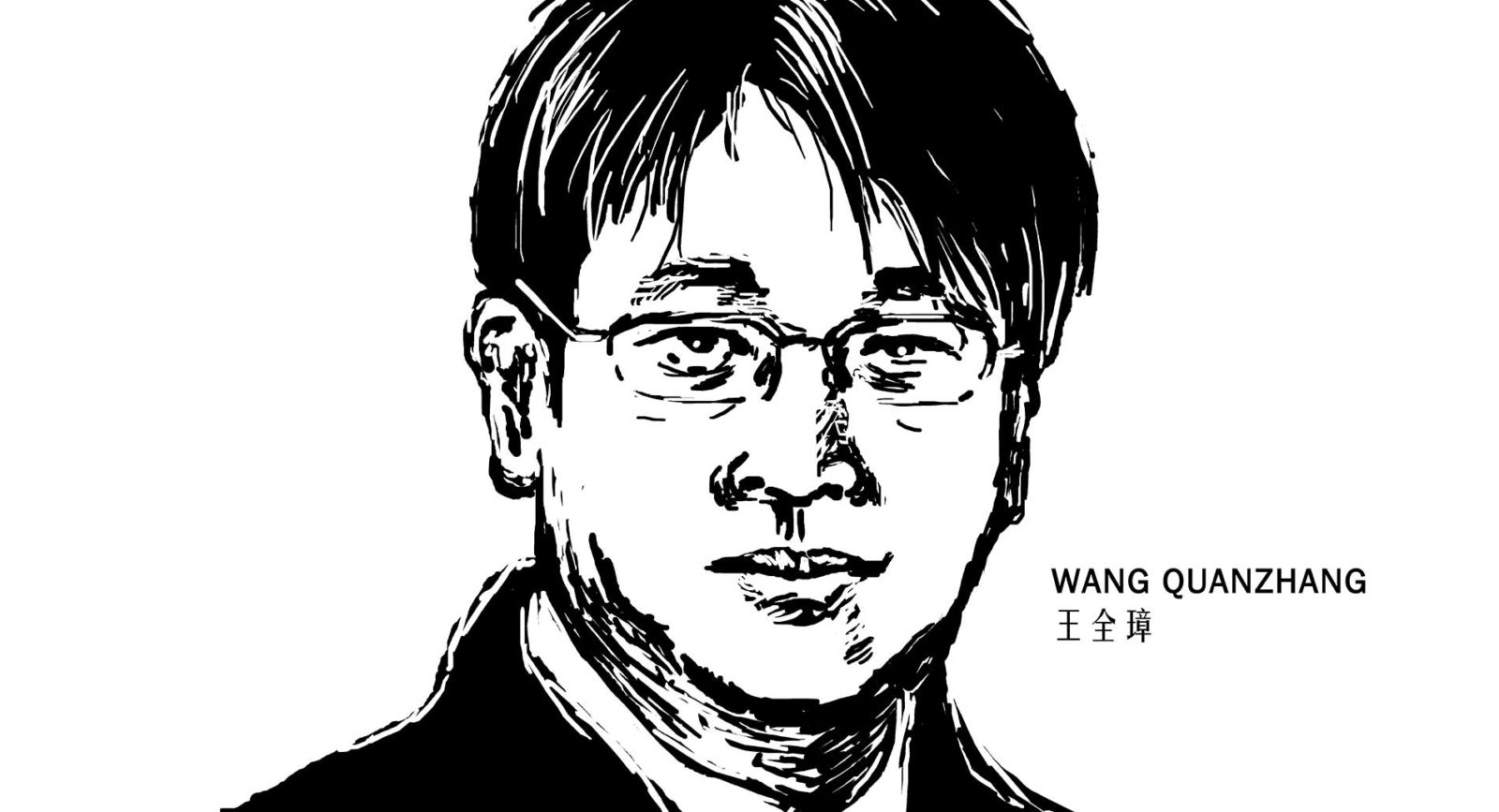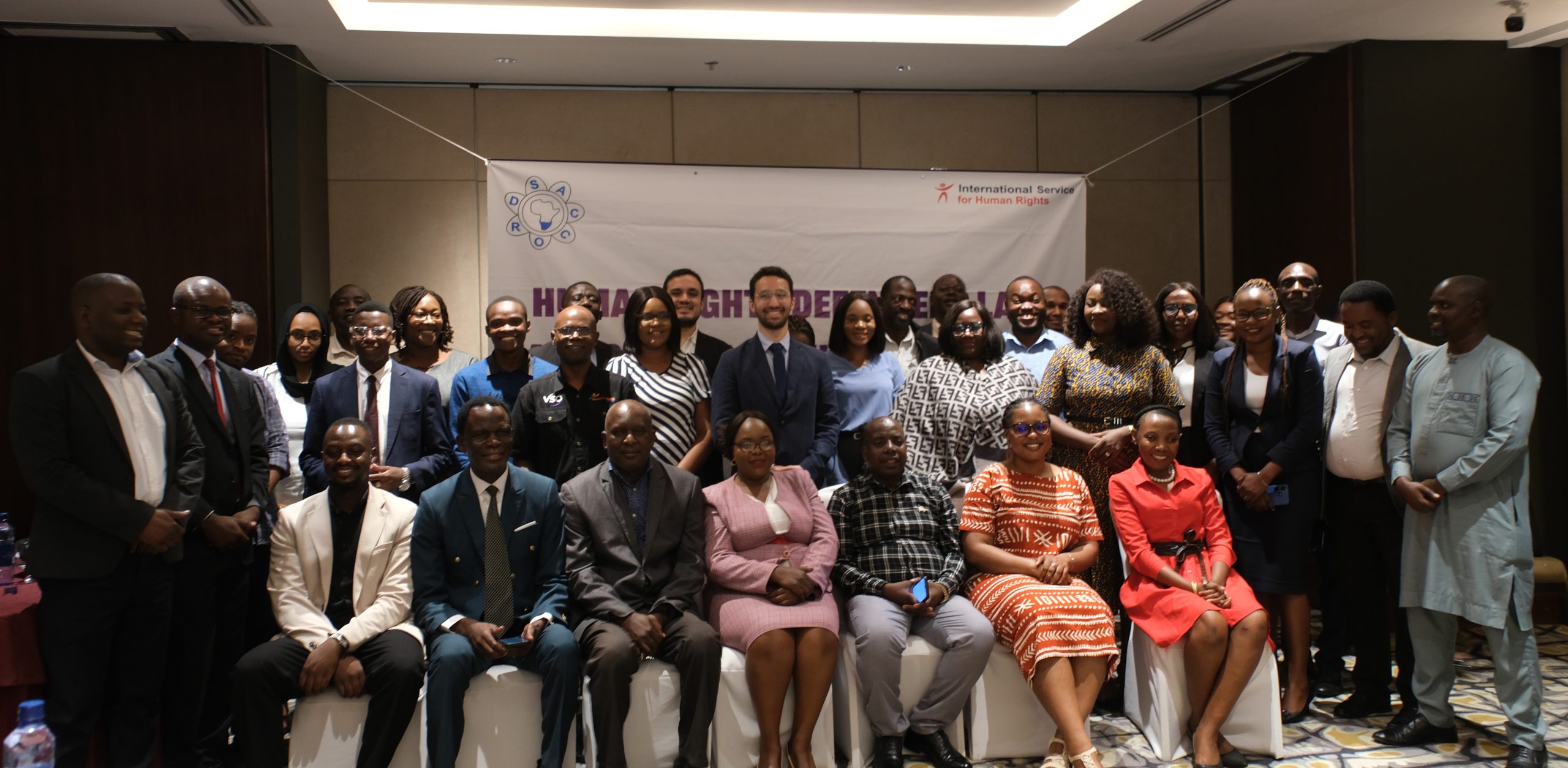阅读中文版本,请点击这里。
On Monday, Chinese authorities sentenced rights defense lawyer Wang Quanzhang for allegedly subverting State power. As ISHR has pointed out, this provision is regularly used to arbitrarily detain, imprison, and silence human rights defenders. Wang’s case forms part of a series of cases criminalising defenders for actions and words that apparently endanger national security.
Before his detention as part of the ‘709 crackdown’, Wang had shown his commitment to human rights by defending the accused in ‘sensitive’ human rights cases including Falun Gong practitioners and victims of land-grabbing. He was first placed under ‘residential surveillance in a designated location’ (RSDL) for six months, a form of enforced disappearance codified in Chinese law, before his official arrest in January 2016. At the time of his sentencing, he had been held incommunicado for almost three and a half years.
‘We are pleased to see that the European Union has spoken out on Wang’s case,’ says Sarah M Brooks, ISHR Asia advocate. ‘It is critical that China’s abuse of the rule of law be held up for public scrutiny’.
‘The next session of the Human Rights Council, in March, is slated to address China’s commitments to human rights progress – instead, it must be a space for governments to stand up to continued violations of human rights throughout the country.’
Arbitrary detention in serious breach of international law
The seriousness of due process violations during Wang’s detention was highlighted in an August 2018 opinion by the Working Group on Arbitrary Detention, a group of five UN experts mandated to address situations of arbitrary deprivation of liberty. The Working Group argued Wang’s detention lacked sufficient legal basis, in light of the legal vagueness of the accusation grounds.
The five experts also pointed to the blatant lack of a fair trial and due process guarantees, as Wang was repeatedly denied contact with his family, and constantly hindered access to all forms of legal counseling. In January 2018, one of his family-appointed defense lawyers, Yu Wensheng, was criminally detained, and has been held incommunicado since. Wang’s first reported act during his trial was to dismiss his State-appointed lawyer, Liu Weiguo.
Along with well-founded fears that Wang has been subjected to torture and other ill-treatment, the Working Group indicated that Wang’s arbitrary detention, as a result of his human rights work and legitimate exercise of his rights to freedom of expression, constituted a grave breach of international law. It urged the Chinese authorities to immediately release Wang, ensure appropriate compensation, as well as a full and independent investigation into the circumstances of his detention.
Brooks adds, ‘Any argument the Chinese government makes for the legality of its brutal treatment of Wang, and other human rights defenders, is undermined by its refusal to engage meaningfully with, or to show a modicum of respect to, the experts mandated by the UN to make these assessments’.
A joint statement released today by the China Human Rights Lawyers Concern Group and other civil society organisations has voiced similar demands and asked for the immediate acquittal of Wang Quanzhang, together with an end to harassment against his wife, Li Wenzu, and their child. The Concern Group equally underlines the recurrent pattern of secret trials targeting rights defenders in China:
‘We reiterate that no verdicts of guilty in Wang’s case shall be accepted in the absence of a fair and open trial, not to mention the 4-year-and-6-month imprisonment. The conviction and sentence on Wang did not go through a just legal procedure, and therefore are unjust in itself’.
The imperative for the Human Rights Council to act
Since Wang’s arrest in August 2015, his wife, Li Wenzu, has relentlessly protested and filed legal proceedings to obtain information about her husband’s whereabouts and uphold his right to see a lawyer. Supported by the wives and family members of other detained rights lawyers, she has actively contributed in bringing international diplomatic attention to her husband’s situation, including by the Special Procedures of the UN Human Rights Council. As a result of her actions, she has been constantly harassed and closely monitored, while her son has been deprived of his basic right to education.
In a February 2018 joint letter with 19 other organisations, ISHR urged the Human Rights Council to call for the release of all arbitrarily detained individuals, including Wang Quanzhang, and condemn the use of ‘residential surveillance in a designated location’. Ahead of the adoption of China’s period rights review at the upcoming 40th session of the Human Rights Council in March 2019, ISHR urges States to condemn the sentence as further evidence of China’s unwillingness to live up to the ‘highest human rights standards’ expected from an elected member at the Council.
Trend of secret trials, harsh sentencing for human rights activists
On 29 January 2019, one day after Wang’s trial, another high-profile rights activist, Liu Feiyue, was sentenced to five years’ imprisonment for ‘inciting subversion to State power’. Liu ran Civil Rights and Livelihood Watch (Minsheng Guancha), a website covering human rights abuses ranging from protests and petitioners to police abuse and government corruption. Liu’s arbitrary deprivation of liberty was the subject of an April 2018 opinion by the Working Group on Arbitrary Detention, underlining the detention’s lack of legal basis and sufficient due process guarantees.
The same opinion also addressed the arbitrary detention of veteran rights activist Huang Qi, still waiting for his sentence after a first secret trial on 14 January 2019 on grounds of leaking State secrets to foreign entities. In November 2018, ISHR and 14 other NGOs had released a joint statement calling for Huang’s immediate release, given reports that he was denied adequate medical treatment despite his deteriorating health condition. On 20 December 2018, a number of UN human rights experts issued a statement reiterating this call.
Citizen journalist Zhen Jianghua, sentenced on 28 December 2018 to two years imprisonment for ‘inciting State subversion’ has also drawn the Working Group’s attention in a January 2018 letter of allegation from UN experts to Chinese authorities.
‘It is hard to see the quick action by judicial authorities as a coincidence’, says Brooks. ‘It looks, rather, like an effort to put the books in order before going under the spotlight at the Human Rights Council in March.’
‘The international community needs to show it is not fooled by this farce, and will stand firm for an objective look at China’s human rights situation, including its abuse of rule of law.’
For more information, please contact Sarah M Brooks at s.brooks[at]ishr.ch or @sarahmcneer.
Image credit: Badiucao




